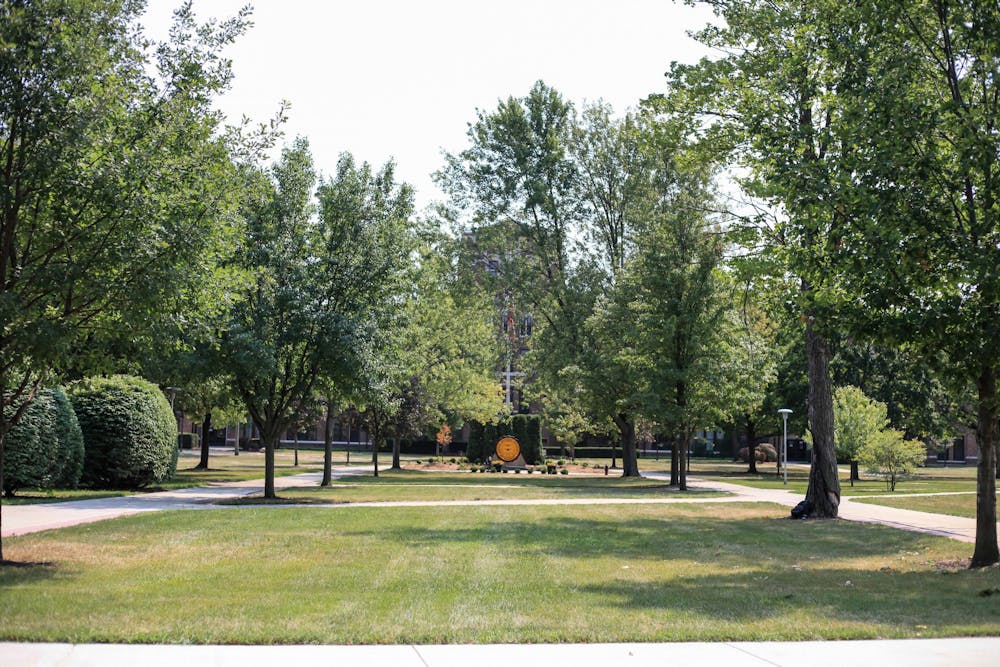Faculty share frustrations regarding classes, return plan
To keep classes in-person in some capacity, Central Michigan University switched to the hyflex model, allowing students to attend face-to-face classes while following health precautions or through video conference apps such as Cisco Webex or Zoom.
Some faculty members expressed frustration over this decision, with some signing an open letter calling for Gov. Gretchen Whitmer to mandate most college classes in the state stop meeting face-to-face and operate completely online. This letter has signatures from faculty all over Michigan, including CMU, Grand Valley State University, Western Michigan University, U-M Flint and Northern Michigan University.
President of the Faculty Association Matt Johnson said this summer was filled with stress for faculty and staff trying to figure out how to bring students back under the restrictions of COVID-19.
“Everybody is burned out. I never felt the morale being lower than it is right now,” said Johnson, associate professor in the Department of Educational Leadership. “It's the start of the semester. I don't know how students feel, but faculty and staff are burned out.”
Faculty did not get a say in the plans around the hyflex model, which made faculty skeptical and resistant, Johnson said. The doubt has led to an erosion of trust with faculty and could have been avoided if they were involved in the decision-making process, he said.
"Most faculty are in agreement that hyflex was a foregone conclusion well before the Academic Senate meetings," Johnson said. "It was not a deliberative discussion where faculty had the opportunity to weigh decisions or choose among alternatives, which is the heart of shared governance between administration and faculty."
Executive Vice President and Provost Mary Schutten said she and President Bob Davies did engage academic senate in the spring and continued discussions into the summer with the university's Academic Fall Planning Task Force.
Religion faculty member Sara Moslener said faculty members could only go fully online if they applied with a medical exemption. She wished the university would have extended the option to work or teach online like students are.
However, Schutten said a process was put in place for requesting to work remotely, which allowed requests of all types. She said many faculty were already teaching online courses as well.
Though the process to apply could have been clearer, technology has worked well with the help of IT, and student participation has been strong, Johnson said. He was also glad to see students taking mask-wearing seriously in classrooms.
But even if mask wear in the classroom is taken seriously by students, they are not taking the same care when going out to parties off-campus. Johnson does not think any college reopening plan will work and it is a matter of if, not when, CMU will revert to fully online courses.
When it comes to participation, it is harder for Moslener to gauge what it is like in her classes. With the hyflex model, she is now teaching two different audiences at the same time. More than half of her students are taking classes online, with this audience disappearing from her sight when she shares her screen. She feels disconnected from her students.
Moslener teaches a class about religion, race and discrimination in the United States and wants to focus on the content and not how to make the classwork.
“I just want to be able to have these conversations that are really important, and all this other stuff takes a lot of energy,” she said. “It tells me that the university has not done what it needed to do so the professors can just focus on doing their job.”
Engineering and Technology faculty member David Kelley has a more favorable view of the hyflex. He loves that it gives students the option to either come to class, take it online in their hometowns or even watch it afterward since he records his lectures. He can see making the Product Design Engineering Technologies program switching to the hyflex model.
Moslener is one of many faculty members who signed a letter calling for universities in the state to not require face-to-face learning. She said staff was told by CMU that going all-online would be economically disastrous. She hopes the State of Michigan could help quell the fears from the university.





